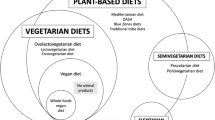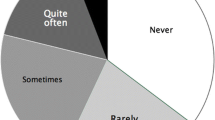Abstract
Ancient dietetics—lifestyle and medicine. The wide reaching meaning of eating and drinking is already recognized in antiquity. The declared aim of antique dietetics is the upbringing to a healthy lifestyle. Fundamental considerations of dietetic, theoretically organized ideas can be traced back to the Presocratics, who, for the first time in cultural history, let themselves be guided by direct observations from nature. Working from the meaning of dietetics as pure nutritional teachings, one can see in the Corpus Hippocraticum a significant, systematic attempt to put forth dietetics as a concept of lifestyle. Here a central aspect is that of equilibrium, as it is expressed in the rule of the four humours. Dietetics continually become a connecting link between Natural Philosophy and Anthropology and a lifestyle orientated to nature. Finally, Galen introduces a further systematization of the already existing and the increasingly modified. Nutrition and health are brought into association and the theoretical presupposed practically overturned. In late Antiquity dietetical out-looks continue to be discussed, which were transferred to the Middle Ages and still show practical relevance.
Similar content being viewed by others
Literatur
Angeletti, Luciana R. und Cavarra, Berenice: “La tradizione dietetica classica e il modello alimentare cristiano nella tarda antichità e nell' alto medioevo”. Aspetti della terapia nell' Corpus Hippocraticum, Atti del IXème Colloque International Hippocratique, Pisa 25–29 sept. 1996 hrsg. v. Ivan Garofalo, Alessandro Lami, Daniela Manetti und Amneris Roselli. Leo S. Olschki: Firenze 1999, S. 467–478.
Bachmann, Peter: Galens Abhandlung darüber, daß der vorzügliche Arzt Philosoph sein muß (Arab./dt.) Nachr. Akad. Göttingen Phil. Hist. Kl. 1965, 1. Vandenhoeck & Ruprecht: Göttingen 1966.
Cordes, Peter: “Innere Medizin bei Homer”. Rheinisches Museum 134 (1991), S. 113–120.
Craik, Elizabeth: “Hippokratic Diaita”. Food in Antiquity, hrsg. v. John Wilkins, David Harvey und Mike Dobson. University of Exeter Press: Exeter 1995, S. 343–350.
Davidson, James N: Kurtisanen und Meeresfrüchte Die verzehrenden Leidenschaften im klassischen Athen. Wissenschaftliche Buchgesellschaft: Darmstadt 1999.
Edelstein, Ludwig: “Antike Diätetik”. Antike 7 (1931), S. 255–270. [=Medizinhistorisches Journal 1 (1966), S. 162–174].
Eijk, Philip van der: “The systematic status of therapy in the Hippocratic Corpus and in the work of Diocles of Carystus”, Aspetti della terapia nell' Corpus Hippocraticum, Atti del IXème Colloque International Hippocratique, Pisa 25–29 sept. 1996, hrsg. v. Ivan Garofalo, Alessandro Lami, Daniela Manetti und Amneris Roselli. Leo S. Olschki: Firenze 1999, S. 389–404.
Engelhardt, Dietrich von: “Hunger und Appetit, Essen und Trinken im System der Diätetik—Kulturhistorische Perspektiven”. Kulturthema Essen, Ansichten und Problemfelder, hrsg. v. Alois Wierlacher, Gerhard Neumann und Hans Jürgen Teuteberg. Akademie: Berlin 1993, S. 141–149.
Garcia-Ballester, Luis: “On the origin of the, six non-natural things”. Galen und das hellenistische Erbe, Verhandlungen des IV. Internationalen Galen-Symposiums, Sudhoffs Archiv, Beihefte 32. Steiner: Stuttgart 1993, S. 105–115.
Garnsey, Peter: Food and society in classical antiquity Cambridge University Press: Cambridge 1999.
Grant, Mark: “Oribasios and medical dietetics or the three Ps”. Food in Antiquity, hrsg. v. John Wilkins, David Harvey und Mike Dobson. University of Exeter Press: Exeter 1995, S. 371–379.
Grant, Mark: Galen on Food and Diet. Routledge: London; New York 2000.
Hamarneh, Sami: “Origins of Arabic drug and diet therapy”. Physis 11 (1969), S. 267–286.
Hanson, Ann Ellis: “Fragmentation and the Greek medical writers”. Collecting fragments—Fragmente sammeln, Aporemata, 1, hrsg. v. Glenn W. Most. Vandenhoeck & Ruprecht: Göttingen 1997, S. 289–314.
Harig, Georg und Kollesch, Jutta: “Gesellschaftliche Aspekte der antiken Diätetik”. N.T.M. Internationale Zeitschrift für Geschichte und Ethik der Naturwissenschaften., Technik und Medizin 8 (1971), S. 14–23.
Harig, Georg: “Die Diätetik der römischen Enzyklopädisten”. N.T.M. Internationale Zeitschrift für Geschichte und Ethik der Naturwissenschaften, Technik und Medizin 13 (1976), S. 1–15.
Jarcho, Saul: “Galen's six non-naturals, A bibliographic note and translation”. Bulletin of the History of Medicine 44 (1970), S. 372–377.
King, Helen: “Food and blood in Hippokratic gynaecology”, Food in Antiquity, hrsg. v. John Wilkins, David Harvey und Mike Dobson. University of Exeter Press: Exeter 1995, S. 351–358.
Kollesch, Jutta: “Zur Säftelehre in der Medizin des 4. Jahrhunderts v. u. Z.”. Acta congressus internationalis XXIV historiae artis medicinae. II, hrsg. v. Jószef Antall. Museum, Bibliotheca et Archivum Historiae Artis Medicinae de I. Ph. Semmelweis nominata: Budapest 1976, S. 1339–1342.
Kudlien, Fridolf: Der Beginn des medizinischen Denkens bei den Griechen, Von Homer bis Hippokrates. Artemis: Zürich 1967.
Longrigg, James: Greek rational medicine: philosophy and medicine from Alcmaeon to the Alexandrians. London 1993.
Longrigg, James: “Presocratic philosophy and Hippocratic dietetic therapy”. Aspetti della terapia nell' Corpus Hippocraticum, Atti del IXème Colloque International Hippocratique, Pisa 25–29 sept. 1996, hrsg. v. Ivan Garofalo, Alessandro Lami, Daniela Manetti und Amneris Roselli. Leo S. Olschki: Firenze 1999, S. 43–50.
Lonie, Iain M.: “A structural pattern in Greek dietetics and the early history of Greek medicine”. Medical History 21 (1977), S. 235–260.
Nutton, Vivian: “Galen and the traveller's fare”. Food in Antiquity, hrsg. v. John Wilkins, David Harvey und Mike Dobson. University of Exeter Press: Exeter 1995, S. 359–370.
Rätsch, Christine: Heilkräuter der Antike in Ägypten, Griechenland und Rom, Mythologie und Anwendung einst und heute. Diederichs: München 1995.
Riha, Ortrun: “Die diätetischen Vorschriften der mittelalterlichen Monatsregeln”. Licht der Natur, Medizin in Fachliteratur und Dichtung, FS Gundolf Keil Göppinger Arbeiten zur Germanistik, 585, hrsg. v. Josef Domes, Werner E. Gerabek, Bernhard D. Haage, Christoph Weißer und Volker Zimmermann, Kümmerle: Göppingen 1994, S. 339–364.
Riha Ortrun: “Gesundheit als Norm, Krankheit als Normalität. Die Ordnung des Lebens und die Ordnung der Welt in der mittelalterlichen Medizin”. Prozesse der Normbildung und Normveränderung in mittelalterlichen Europa, hrsg. v. Doris Ruhe und Karl-Heinz Spieß. Steiner: Stuttgart 2000, S. 75–92.
Riha, Ortrun: “Diät für die Seele, Das Erfolgskonzept von Hufelands Makrobiotik”. N.T.M. Internationale Zeitschrift für Geschichte und Ethik der Naturwissenschaften, Technik und Medizin 9 (2001), S. 80–89.
Scarborough, John: “Diphilus of Siphnos and hellenistic medical dietetics”. Journal of the History of Medicine and Allied Sciences 25 (1970), S. 194–201.
Schipperges, Heinrich: “Zur Philosophie der Ernährung”. Kulturthema Essen, Ansichten und Problemfelder, hrsg. v. Alois Wierlacher, Gerhard Neumann und Hans Jürgen Teuteberg. Akademie: Berlin 1993, S. 25–40.
Schöner, Erich: Das Viererschema in der antiken Humoralpathologie, Sudhoffs Archiv, Beiheft 4. Steiner: Wiesbaden 1964.
Schubert, Charlotte: “Der Begriff der Isonomie bei Alkamaion”. Klio 66 (1984), S. 40–50.
Schubert, Charlotte: “Einführung”. Frauenmedizin in der Antike, Gr.-lat.-dt.hrsg. u. übers. v. Charlotte Schubert Und Ulrich Huttner. Artemis: Düsseldorf: Zürich 1999, S. 425–496
Schulze, Christian: Aulus Cornelius Celsus—Arzt oder Laie? Autor, Konzept und Adressaten der De medicina libri octo, BAC, 42. Trier 1999.
Schwarz, Irene: Diaita, Ernährung der Griechen und Römer im klassischen Altertum, Eine altsprachlich-ernährungswissenschaftliche Studie, Innsbrucker Beiträge zur Kulturwissenschaft, Sonderheft 94. Verlag des Institus für Sprachwiss. der Univ. Innsbruck: Innsbruck 1995.
Staden, Heinrich von: Herophilus: the art of medicine in early Alexandria. Cambridge University Press: Cambridge 1989.
Steger, Florian: Asklepiosmedizin. Medizinischer Alltag in der römischen Kaiserzeit. Medizin, Gesellschaft und Geschichte, Beiheft 22. Steiner: Stuttgart 2004.
Tieleman, Teun: “Chrysippus' therapeutikon and the Corpus Hippocraticum, Some preliminary observations”. Aspetti della terapia nell' Corpus Hippocraticum, Atti del IXème Colloque International Hippocratique, Pisa 25–29 sept. 1996, hrsg. v. Ivan Garofalo, Alessandro Lami, Daniela Manetti und Amneris Roselli Leo S. Olschki: Firenze 1999, S. 405–418.
Weisser, Ursula: “Ibn Sina und die Medizin des arabisch-islamischen Mittelalters—Alte und neue Urteile und Vorurteile”. Medizinhistorisches Journal 18 (1983), S. 283–305.
Wilkins, John, Harvey, David und Dobson, Mike (Hrsg.): Food in Antiquity. University of Exeter Press: Exeter 1995.
Wilkins, John: “Introduction”. Food in Antiquity, hrsg. v. John Wilkins, David Harvey und Mike Dobson. University of Exeter Press: Exeter 1995, S. 337–342.
Wittern, Renate: “Die psychische Erkrankung in der klassischen Antike”. Fundamenta Psychiatrica 1 (1987), S. 93–100.
Wittern, Renate: “Die Anfänge des wissenschaftlichen Denkens am Beispiel der Medizin des 5. Jahrhunderts”. Griechische Klassik, Erlanger Beiträge zur Sprache und Literatur, 75, hrsg. v. Egert Pöhlmann und Werner Gauer. Carl: Nürnberg 1994, S. 153–166.
Wittern, Renate: “Die Anfänge der griechischen Medizin”. Philosophen der Antike. Bd I, hrsg. v. Friedo Ricken. Kohlhammer: Stuttgart 1996, S. 145–159.
Wittern, Renate und Pellegrin, Pierre (Hrsg.): Hippokratische Medizin und antike Philosophie, Medizin der Antike, 1. Olms-Weidmann: Hildesheim 1996.
Wöhrle, Georg: Studien zur Theorie der antiken Gesundheitslehre, Hermes Einzelschriften, 56. Steiner: Stuttgart 1990.
Author information
Authors and Affiliations
Rights and permissions
About this article
Cite this article
Steger, F. Antike Diätetik—Lebensweise und Medizin. NTM N.S. 12, 146–160 (2004). https://doi.org/10.1007/s00048-004-0195-x
Issue Date:
DOI: https://doi.org/10.1007/s00048-004-0195-x




